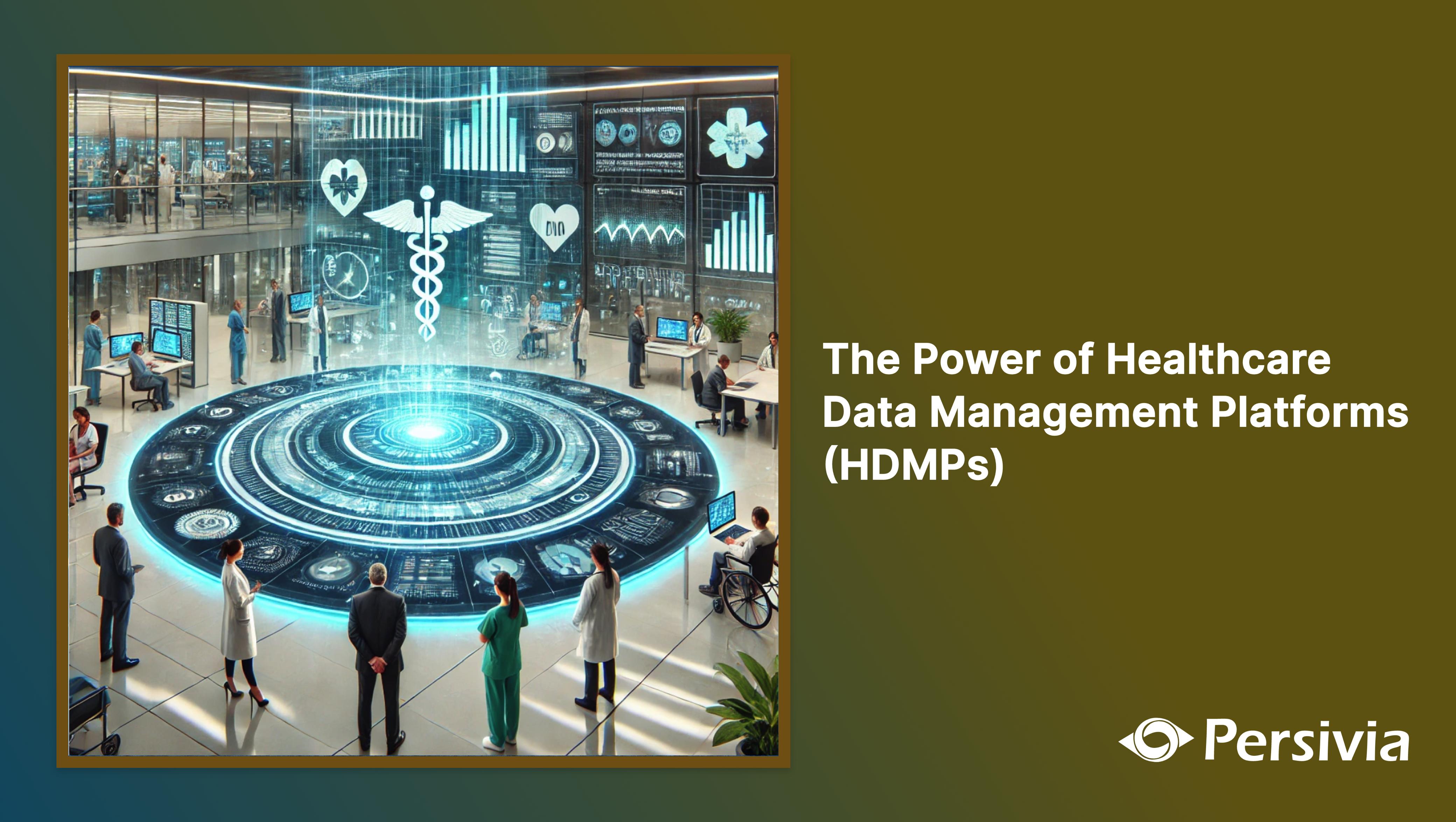Consider a hospital where medical teams rely on fast, accurate information to make life-saving decisions. However, they’re confronted with a web of disconnected data systems instead of having everything at their fingertips. This is the reality for many healthcare organizations, where data gets stuck in silos, hard to access, and slowing down the work of doctors and staff. Some recent statistics show that this dirty data annually costs US healthcare $300 billion. This is all due to the mismanagement of data, which brings out the need for efficient data management systems.
That’s where Healthcare Data Management Platforms (HDMPs) come in. Acting like a conductor of this messy data orchestra, HDMPs pull together all the different information streams into one system. In this blog, we’ll look at how HDMPs are making healthcare data easier to manage, letting information flow in real time, and creating a more efficient, connected system focused on patients.
From simplifying data sharing to making advanced analytics and AI possible, HDMPs are changing how healthcare uses data. Let’s see how this shift from silos to symphonies is helping improve the industry.
Understanding The Health Data Management Platform (HDMP)
According to Gartner’s report, a Health Data Management Platform (HDMP) collects data services and capabilities designed specifically for the healthcare industry. It enables the real-time, fluid exchange and use of health information across various systems and stakeholders.
The core focus of an HDMP is transactional interoperability, but it also supports broader use cases such as federated learning, population health management, artificial intelligence (AI), and clinical trials. HDMPs utilize modern technologies like cloud and data fabric to handle data integration, meet regulatory requirements, and modernize the healthcare industry.
Addressing Healthcare Data Challenges with Health Data Management Platforms (HDMPs)
Healthcare organizations face multiple data management challenges, including fragmented data sources, rapid data growth, and strict security requirements. Data is often scattered across systems like EMRs, EHRs, and handwritten records, with inconsistencies making it challenging to manage effectively. The healthcare industry generates 30% of the world’s data, further complicated by new sources like telehealth.
Data security and compliance with regulations like HIPAA are critical, while integration and interoperability issues prevent seamless data sharing. Ensuring data accuracy and extracting valuable insights from complex datasets also remain significant hurdles.
A Health Data Management Platform (HDMP) offers a comprehensive solution to these challenges. According to Gartner, HDMPs streamline data exchange in real-time, addressing key use cases such as population health management and clinical trials. With cloud-based architecture, HDMPs provide scalable, real-time data access. AI and machine learning tools support predictive analytics and smarter data management, while FHIR-enabled foundations ensure interoperability across systems. These features enhance decision-making, improve patient care, and drive operational efficiency across healthcare organizations.
Changing Landscape of Health Data Management
Transition to Cloud-Based Data Solutions
Healthcare organizations are reassessing their data and analytics infrastructure as they migrate to the cloud. This move is driven by the need for increased agility, scalability, and reduced operational costs.
Global Standardization through FHIR
The healthcare industry is increasingly adopting FHIR as the universal standard for data exchange, simplifying the complexities of sharing health information across various platforms.
CareSpace®: Leading Healthcare Data Platform with Advanced Data Management
With 15 years of experience in healthcare technology, Persivia’s CareSpace® platform simplifies data management for healthcare organizations by integrating information from over 500 sources. Using advanced Natural Language Processing (NLP) and an Enterprise Master Patient Index (EMPI), CareSpace® creates a comprehensive, real-time patient record. The platform ensures seamless data exchange, strong compliance with industry standards like FHIR and HITRUST, and supports AI-driven analytics for smarter decision-making. CareSpace® also prioritizes data privacy and security, helping organizations improve operations and patient care with reliable, actionable insights.
Conclusion
In today’s complex healthcare environment, where data fragmentation and interoperability issues continue to hinder progress, CareSpace® by Persivia a top notch healthcare data platform emerges as a comprehensive solution that addresses these critical challenges head-on. Backed by 15 years of expertise and equipped with advanced AI-driven analytics, robust data integration capabilities, and industry-leading security standards, CareSpace® transforms how healthcare organizations manage and utilize their data.
By breaking down silos, enhancing operational efficiency, and delivering actionable insights in real-time, CareSpace® empowers providers to make informed, data-driven decisions that improve patient care and streamline workflows. As the healthcare industry grapples with increasing data demands, CareSpace® provides the seamless, secure, and innovative platform needed to lead the future of connected, patient-centric care.
Table of Contents
